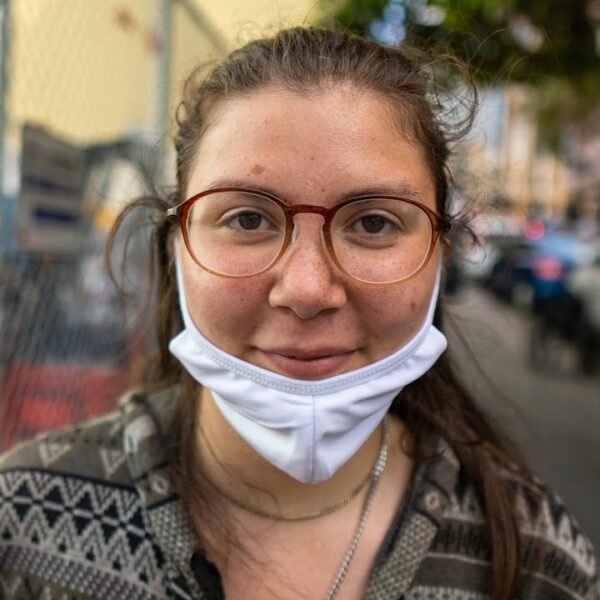I had a pretty average working class, English childhood living in the North of the UK (Yorkshire) with two working parents and one sister. We lived in a small terraced house, which my Mum and Dad worked hard to afford and were proud of. Homelessness felt like something that happened to other people; people who made bad choices and only had themselves to blame. It certainly didn’t happen to people like us.
The most important focus for me growing up in the 1980s was getting a good education. It was the route to social mobility. I was determined to be the first person in my family to get a place at university, which I did. At the age of 20, I moved out of home and into halls (dorm room in the US). It felt like life was on the upward trajectory I’d always hoped.
A year later, my parents got divorced and my Dad stopped paying the mortgage. There was a deep recession in the UK at the time (1990s). As my Mum wasn’t earning at this point, and as it simply wasn’t the “done thing” to talk about money or ask for help, my childhood home was repossessed. My Mum was made homeless when I was 23 years old.
The day it happened is burned on my brain.
It is 20-plus years ago now, and yet I can feel my throat tightening with tears even as I type these words. I went “home” to help pack everything up and move my Mum into a homeless hostel while she waited for a space in government housing to become available.
My Mum and I are very different. While I am tall, noisy and generally give off an air of confidence, my Mum is small and socially awkward. She lived a sheltered, religious life up until that point. It was devastating to move her into a tiny room in a noisy hostel, with people she had no idea about how to interact with and in a situation she was ill-equipped to withstand.
From that point on, my mission became earning enough money to support my Mum financially. I helped her move from that place, and I got a job while continuing to study. Within a year, she was in a rented home. The impact of that day and the experience of homelessness, however, was far reaching, on my Mum, on me, and on our relationship.
Since that event, Mum has not worked and suffers from long-term depression and PTSD. My own relationship to money, property and the concept of “home” and “family” has been problematic. I became estranged from my Dad as a consequence of the situation. And I refused to put down any sort of roots of my own, for fear they would be taken away. Whenever I had something good in my life (relationship, job, money) I would be permanently anxious it might be taken away from me. My friends and I used to laugh, calling it my “bag lady complex”. But hidden beneath the laughter was a deeper truth that I still find difficult to talk about.
This week I will reach the age that Mum was when it happened to her. In a terrifying synchronicity, I am headed closer and closer to my bag lady nightmare being fulfilled.
I was made redundant from my last job in January 2020. At the time I was unconcerned, imagining I would get another role relatively quickly. But the Coronavirus pandemic meant that the job market in the UK has become incredibly challenging.
I don’t qualify for any of the financial support the UK government is offering to compensate workers. Over the course of the last 10 months, I have gone through my savings and am now claiming benefits. Those benefits don’t even cover my rent. I have until the end of February to find a job. Or, I can move into accommodation I can afford, which is virtually impossible in the current private rental market.
The UK welfare system has changed considerably in the last 10 years. It now ranks amongst the least generous of richer countries. From 2010 welfare cuts, commonly referred to as “austerity measures”, aimed at reducing the burden on public spending and inducing claimants to work, have had a significant impact on homelessness according to numerous studies.
In 2020, we can now add the impact of the pandemic on employment (the UK entered a second national lockdown this week) and the prospect of a no deal Brexit to the picture. It is clear the UK is on the brink of a potential economic meltdown.
For people like me, and countless others who may have thought that homelessness could “never happen” to them, the threat becomes closer. As I search LinkedIn, applying for job opportunities that thousands of others are also applying for, I see more and more posts from people who are scared and despairing.













